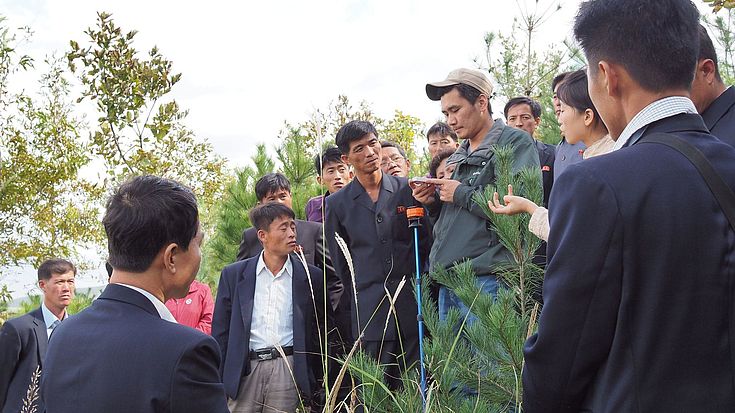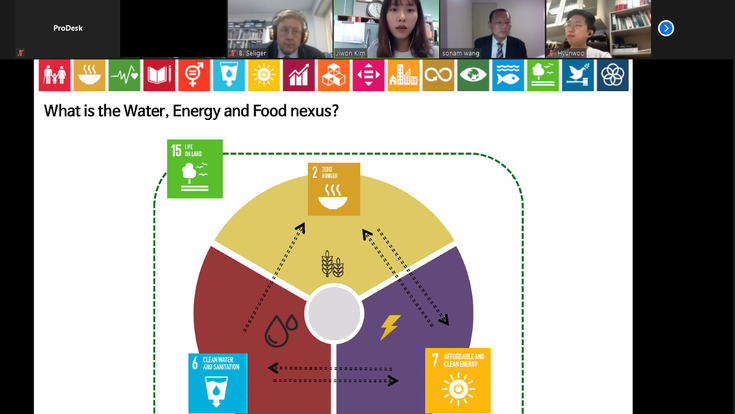Webinar
Nexus and SDGs on the Korean Peninsula

HSS Korea
The second webinar was moderated by Professor Woo-Kyun Lee, director of OJERI and MLRN and hosted four presentations. The first two, among others delivered by Dr Bernhard Seliger (representative HSF Korea), dealt with active implementations of aid in North Korea. The second two, delivered by Hyun-Woo Jo and Jiwon Kim, both PhD-students of Korea University, dealt with scientific background research.
In his presentation on natural disaster risk reduction in North Korea, Dr. Seliger introduced the various natural hazards that strike North Korea on an annual basis, including flooding, draught, heat-related forest fires, extreme cold in winter, etc. He also stressed the role of deforestation as a cause and simultaneously also as a consequence of forest fires. In the last decade, responsiveness to disasters apparently improved, partly because awareness of decision-makers improved. In this context, Dr. Seliger emphasized the new disaster risk reduction strategy of the DPRK that was adopted in late 2009 and contains the plan of promoting international cooperation. According to Seliger, this postulates an important factor as it can be an entry point for international cooperation with the isolated country on the basis of disaster risk reduction. Furthermore, international cooperation could also pave the way for certain inter-Korean cooperation under certain conditions.

The second presenter gave a detailed overview on the work of a German NGO that has worked on improving food production in North Korea via the import of technology (machines) and knowledge capacity-building). He said that while the work of NGOs has a positive impact on the resilience of local residents against natural disasters, economic sanctions have negative impact on humanitarian aid. Lastly, Hyun-Woo Jo and Jiwon Kim, both PhD students at Korea University, gave detailed introductions to their research projects on “Application of Diagnostic Drought Prediction Model in Korean Peninsula” and “Development of a water-food-energy evaluation system based on spatio-temporal information for implementing the Sustainable Development Goals”.
In a closing discussion, participants stressed that a fusion of active implementation and scientific background research have to go hand in hand in order to offer best possible aid as prognostic and/or diagnostic systems can help to better predict results. Furthermore, identifying SDGs as an entry point for cross cooperation is striking for a better mutual understanding through information and knowledge exchange. Focusing on science while leaving politics aside offer small joint entries for cooperation and exchange with North Korea.
